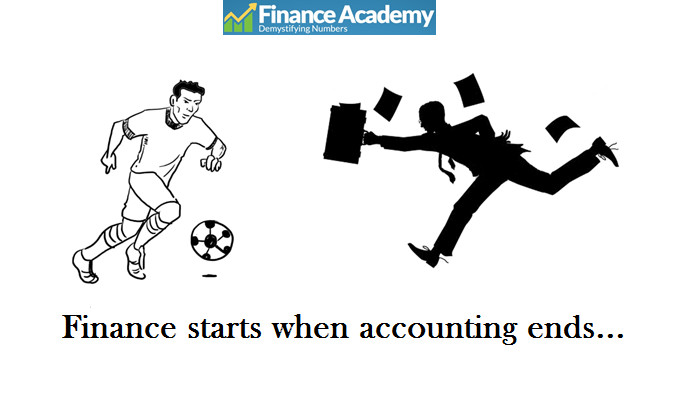I recently conducted a seminar at Holmesglen University, Melbourne. In that seminar, I asked the same question to a dozen business owners. Most of them answered ‘yes.’ Even so, they were not able to explain why in simple words. As always, I prefer the KISS method – Keep It Simple & Specific. I also emphasised having fun in business, too! So, let’s dive into the differences by comparing business with a sport (football).
Speaker and creator of the “4-day MBA” Keith Cunningham once said, “In any sport you cannot tell who is winning or losing if you do not know how to read a scoreboard. In business, financial reports are scoreboards.”
- In Football – KEEPING SCORE
When you are playing football, you have a scorer / timekeeper who records goals, kicks, and other critical stats.
- In Business – KEEPING BOOKS
In business only four types of financial transaction can happen,
- Money comes-in;
- Money goes-out;
- Money supposed to come-in;
- Money supposed to go-out.
Whenever one of the above financial transactions happens a bookkeeper (hopefully) records it.
- In Football – PLAYING BY THE RULES
A referee makes sure the game is fair and played according to the rules.
(The referee cannot play on your behalf)
- In Business – COMPLIANCE
An accountant makes sure you are abiding the rules and regulations set by the government (ATO)
- In Football – THE OBJECTIVE IS TO WIN
To win, you need to make sure every kick of the ball gets you closer to scoring a goal.
- In Business – THE OBJECTIVE IS TO MAKE PROFIT
You should always make decisions that will improve the bottom-line (profit).
We call decisions that affect your bottom-line directly or indirectly financial decisions. If your decisions can affect the bottom-line, then you are a finance person!
Finance starts when accounting ends!
Think about this for a minute…
(I’ll wait…)
Friends, we must remember these critical points:
- Your business must record every financial transaction it makes. These records should always be up-to date. Just imagine what would happen if the scorer in football forgets to add points or note penalties? How would you know if you are winning or losing?
- When your accountant gives you the score (financial reports), do you make business decisions after reading them? Or do you treat it as another bit of compliance? Ask yourself; if you don’t know your business’ score (financial position), you won’t know if the ball you’re busy kicking and running with is bringing you profit.
- Business is not just about turnover, it is about what’s leftover. Just because you seem busy generating sales, it does not mean the business is making profit. Do you know how you affect the bottom-line every time you make a decision? Or is it a gamble?
Let’s end by quoting my mentor and entrepreneur Dr. Marcus Powe; “Stop being busy for the sack of being busy, and start thinking!”
In my next article, you’ll learn how to read the business scoreboard. Let’s start with the Balance Sheet.
I hope by then you will have your latest financial reports prepared by your accountant and ready to go.
Remember, you are giving them business, not the other way around!
Until next time,

